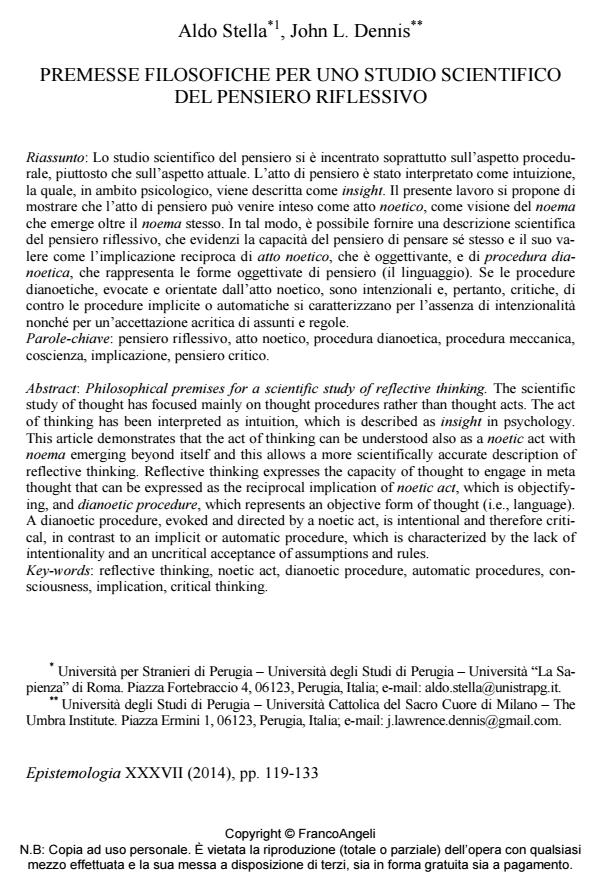Premesse filosofiche per uno studio scientifico del pensiero riflessivo
Journal title EPISTEMOLOGIA
Author/s Aldo Stella, John L. Dennis
Publishing Year 2014 Issue 2014/1
Language Italian Pages 15 P. 119-133 File size 608 KB
DOI 10.3280/EPIS2014-001008
DOI is like a bar code for intellectual property: to have more infomation
click here
Below, you can see the article first page
If you want to buy this article in PDF format, you can do it, following the instructions to buy download credits

FrancoAngeli is member of Publishers International Linking Association, Inc (PILA), a not-for-profit association which run the CrossRef service enabling links to and from online scholarly content.
Philosophical premises for a scientific study of reflective thinking. The scientific study of thought has focused mainly on thought procedures rather than thought acts. The act of thinking has been interpreted as intuition, which is described as insight in psychology. This article demonstrates that the act of thinking can be understood also as a noetic act with noema emerging beyond itself and this allows a more scientifically accurate description of reflective thinking. Reflective thinking expresses the capacity of thought to engage in meta thought that can be expressed as the reciprocal implication of noetic act, which is objectifying, and dianoetic procedure, which represents an objective form of thought (i.e., language). A dianoetic procedure, evoked and directed by a noetic act, is intentional and therefore critical, in contrast to an implicit or automatic procedure, which is characterized by the lack of intentionality and an uncritical acceptance of assumptions and rules.
Keywords: Reflective thinking, noetic act, dianoetic procedure, automatic procedures, consciousness, implication, critical thinking.
Aldo Stella, John L. Dennis, Premesse filosofiche per uno studio scientifico del pensiero riflessivo in "EPISTEMOLOGIA" 1/2014, pp 119-133, DOI: 10.3280/EPIS2014-001008